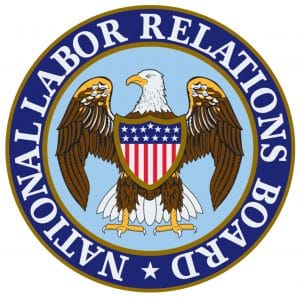Greg Regan, president of the AFL-CIO Transportation Trades Department, of which the SMART Transportation Division is a member, testified on behalf of labor before the U.S. House Transportation and Infrastructure Committee at the Nov. 17 hearing regarding “Industry and Labor Perspectives: A Further Look at North American Supply Chain Challenges.” A release from the TTD regarding his testimony is reproduced below.
WASHINGTON, D.C. — As the supply chain crisis continues to pose serious challenges to all Americans, the Nov. 17 hearing, “Industry and Labor Perspectives: A Further Look at North American Supply Chain Challenges,” held by the House Transportation and Infrastructure Committee, cast an important light on the systemic factors that got us here and on the ill-advised business decisions of several key supply chain actors:
“It is also appalling that some in this industry are so anxious to deflect attention away from their own culpability, that they are taking aim at workers’ bargaining rights and defending their low-road employment practices like misclassification abuses,” Regan added.
Instead, President Regan highlighted the real culprits – a historic surge in consumer demand coupled with disastrous industry practices that cut service, safety, and jobs while placing ever-increasing strain on workers.
“In the 5 years prior to the pandemic, Class I railroads cut 20% of their workforce, and they cut even deeper over the last 18 months,” Regan said. “Now they want to blame a workforce shortage. The tens of thousands of railroad employees who had their jobs eliminated disagree. By eliminating jobs and mothballing equipment, Class I railroads all but ensured that their operations would not be able to rapidly respond to economic shocks. The drastic spike in demand was unpredictable, but the results were inevitable.”
Regan also cautioned that the finger-pointing by industry and politicians, along with solutions that only focus on the short-term problem will leave us vulnerable to the same bottlenecks in the future unless real steps are taken to correct the practices of industry and improve our freight network. “Even when we are able to unload every ship anchored off our shores, and move every container out of the storage yards, we will not have truly solved this problem unless we have reckoned with the underlying practices that left the system so vulnerable to collapse in the first place,” said Regan.
In his comments before the committee, President Regan acknowledged the serious steps President Biden is taking to help solve this crisis and to avoid similar pitfalls in the future – fighting for, and passing the largest investment in infrastructure in American history, including billions of infrastructure spending that will make a real difference across our supply chain.

 Labor Relations Act (NLRA) have decisional bargaining obligations regarding aspects of the ETS that affect terms and conditions of employment-to the extent the ETS provides employers with choices regarding implementation.”
Labor Relations Act (NLRA) have decisional bargaining obligations regarding aspects of the ETS that affect terms and conditions of employment-to the extent the ETS provides employers with choices regarding implementation.”